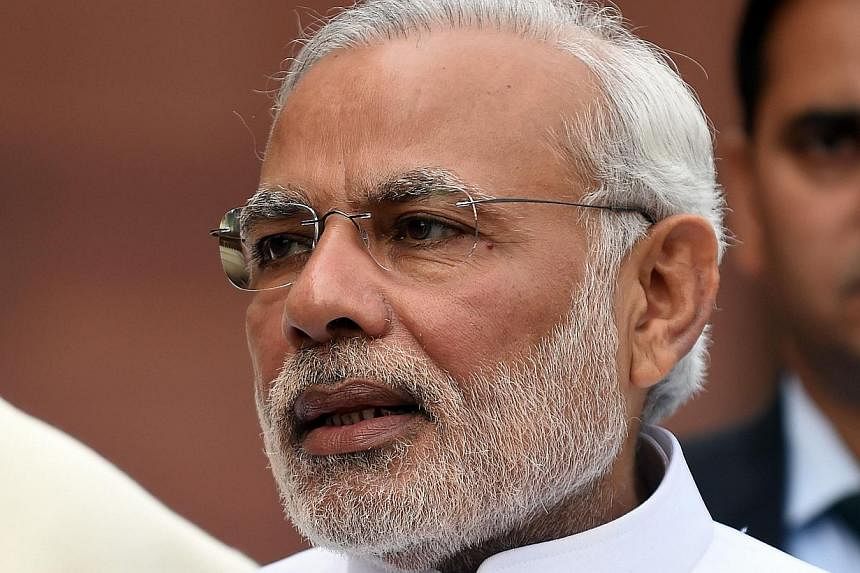NEW DELHI - Indian Prime Minister Narendra Modi has oil to thank for helping to bring about an economic revival in the country. Whether his luck holds depends on a meeting in Vienna today.
Awaiting the outcome of the summit of the Organisation of Petroleum Exporting Countries (Opec) are other Asian leaders who depend largely on imported oil. While Chinese President Xi Jinping is looking at shoring up an economy on track to record its weakest annual growth since 1990, Japanese Prime Minister Shinzo Abe is banking on Opec's 12 members sustaining production levels to stem his nation's slide into recession.
Oil prices have tumbled about 30 per cent since June to below US$79 per barrel due to booming United States shale oil output and slower global economic growth. Analysts are divided on whether Opec will cut production when it meets, or leave it unchanged.
Many Asian nations are exposed to the risk of global oil price changes that affect their balance of trade. In India, which imports 80 per cent of its oil, the key stock index has risen the most among Asian indexes this year as crude slumped.

"The lower the prices, the better for us," said India's third-biggest state refiner Hindustan Petroleum's finance director K. V. Rao. "We'll watch how it unfolds on the 27th. We're currently in a sweet spot."
Mr Modi got the room to free diesel prices from state control for the first time in a decade, cutting subsidies on the fuel and narrowing one of Asia's largest fiscal deficits. Lower oil prices were a reason HSBC Holdings last month cut its forecast for India's current account deficit to 1.5 per cent of gross domestic product, from 2.1 per cent.
While China has signalled tolerance for weaker growth as the government tackles corruption, pollution and debt, the economy needs stable oil prices for a recovery.
Bank of America Merrill Lynch economist Chua Hak Bin said falling oil prices are generally good for Singapore. "If we believe that the decline in prices has been due to supply-side factors rather than a collapse in demand, then Singapore as a net oil importer should benefit from the lower costs. At the same time, it reduces inflationary pressures as transportation costs are lower," he said.
But a sustained fall in oil prices could affect certain sectors of the economy, he noted, such as refiners and rig builders.
"Already we have seen signs of slowing orders," Dr Chua added.
Opec, which supplies about 40 per cent of the world's oil, is considering exempting three nations from any potential cuts, two people with knowledge of the proposal said. Iraq, Iran and Libya would not have to reduce supplies should Opec agree to cut output, according to the duo, who asked not to be identified in line with their national policies.

Ahead of the Opec meeting, talks in Vienna among officials from Venezuela, Saudi Arabia, Russia and Mexico failed to result in a joint commitment to reduce production, according to Mr Rafael Ramirez, Venezuela's Foreign Minister and Opec representative. All parties agreed they were worried about the price of oil, he said.
Saudi Oil Minister Ali al-Naimi said yesterday that he expected the market "to stabilise itself eventually", signalling Saudi Arabia was unlikely to push for a major output change at today's meeting.
Russia sees an average oil price of around US$80 to US$90 per barrel in the medium and possibly long term, Finance Minister Anton Siluanov said yesterday, underlining growing pressure on the Russian budget.
Unchanged Opec production would also lower prices of natural gas imports in Asia. South Korea, for example, is the world's No. 2 importer of liquefied natural gas (LNG). The price of LNG sold by most producers is linked to that of crude oil. Lower crude price means cheaper LNG.
BLOOMBERG, REUTERS
Additional reporting by Yasmine Yahya

